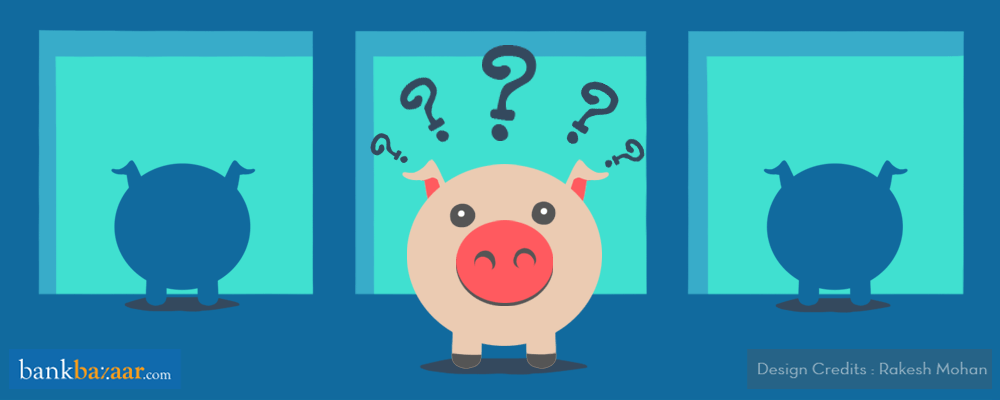
How do you choose Mutual Funds? Do you listen to what the Mutual Fund agent says? Or you do you follow the advice of your friend/neighbour/colleague? Regardless of who you choose to believe, you need to do some due diligence before you put money into a chosen fund.
Additional Reading: Understanding Mutual Funds
Here are the questions you need to ask before investing in any Mutual Fund.
Has It Performed Well?
Several people will say that a fund that has yielded returns of 20% every year for the last five years has a better manager than a fund that has returned 18% every year over the same period. While that may be true on the surface, things aren’t always what they seem.
The fund that gained 18% may have done better than competing funds and gained 5-6 percentage points more than its peers, while the one that gave 20% may have lagged behind its competitors by a huge margin.
To gauge how well a fund has performed, you need to place the fund’s returns into context. What should you do? Compare the fund’s returns to the right benchmarks (including indexes). You also need compare it to other funds that invest in the same types of instruments.
Additional Reading: Which Mutual Fund To Choose
What Is Its Risk Quotient?
Every Investment involves an element of risk. Remember that you are choosing to give your money to a professional money manager rather than putting it into a Savings Account at your favourite bank. Typically, investments that generate high returns involve a high amount of risk. Therefore, investors who take on a lot of risks expect higher returns from their investments.
Additional Reading: Investments For Young Professionals
But, what measures this risk? Well, it’s volatility! In simple terms, volatility is the ups and downs your fund goes through. The more frequent the ups and downs, the more volatile the fund is. That is why two funds with the same returns need not have the same risk elements; one could be much more volatile than the other.
Additional Reading: Market Volatility – How Should Investors Respond?
There are several ways to measure how volatile a fund is. There are two risk measurements that you may have seen often. These are:
- Standard deviation and
- Beta
If both these measures are high, then the fund could be a volatile one. You should also keep a track of a fund’s annual returns in different market conditions. This will give you an idea of how it has performed during volatile phases.
Additional Reading: Estimate Mutual Fund Risk
What Does It Own?
What kind of return can you expect from the fund? This is hidden in the kind of instruments it invests in. Does it invest in Stocks? Bonds? Both? As you know, these are the broad asset classes that Mutual Funds invest in. Obviously, both have different features, which is why you shouldn’t expect them to perform in a similar manner. For instance, you cannot expect to get a 20% gain from a Debt Mutual Fund. However, it is alright to expect the same from an Equity fund.
Additional Reading: Debt Mutual Funds Help Maximize Gains
Fund managers can hold stocks of popular, big companies, such as Reliance Industries or Infosys technologies, or buy stocks of small companies you might have never heard of. They can go all out for companies that are growing quickly, but are expensive, or they can prefer value stocks trading at cheap prices. How a manager invests your money plays a major role in determining the fund’s performance.
Additional Reading: Importance Of A Good Fund Manager
To get an idea of how a manager invests, you must look at the fund’s portfolio. The reports published by the mutual fund companies will contain this information. You can also get portfolio data, which includes top stocks or bonds and the sectors invested in, on their websites.
Who Is Running It?
Just like a company is successful only if the people who run it know what they are doing, Mutual Funds are also successful only if the fund managers who make the investment decisions do the right things. That is why you need to know more about the fund manager who runs the fund.
What kind of experience does the fund manager have? How long has he been handling the fund? Have there been several fund managers for the fund? How often has the change happened? Did the fund give bad returns whenever the fund manager was changed? These are important questions that need to be asked.
Additional Reading: How To Analyse The Importance Of Your Fund Manager
How Much Does It Cost?
Mutual Funds come at a cost. If you want professional money management services, you need to pay for them. However, paying huge amounts in fees is almost like accepting a loss right away. That’s because every rupee you give for managing your fund is a rupee you give away from your own return.
Find out the cost of owning a Mutual Fund from the AMC website or some other Mutual Fund sites.
Additional Reading: What To Remember When Investing In Mutual Funds
Investing blindly is like gambling – it can go either your way or the other way. Always make informed decisions before investing so that the returns are in your hands.